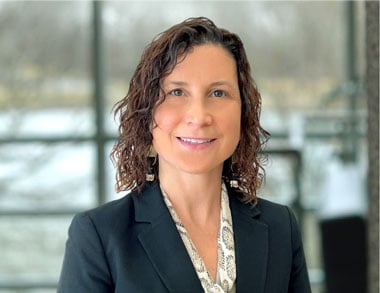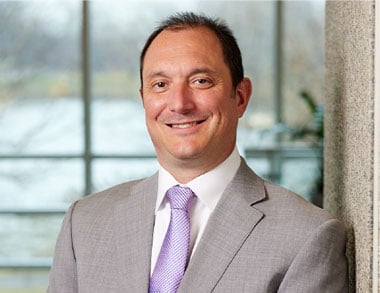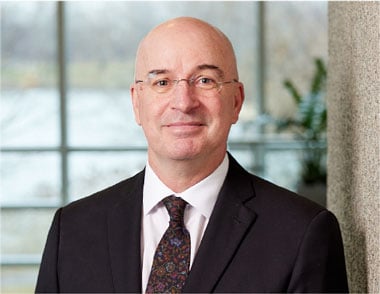 Investment Team Voices Home Page
Investment Team Voices Home Page
Part 1: Straight Talk with the Calamos Sustainable Equities Team
Special Three-Part Series
We sat down with Tony Tursich, Jim Madden, and Beth Williamson to discuss how their experienced, common-sense, and performance-based approach to sustainable investing gives them an edge in providing our clients with enduring portfolios of leading companies that have strong financial metrics, manage their material nonfinancial risks/opportunities well, and offer better future growth potential than peers.
A Common-Sense, Above-the-Fray Approach to Macro Factors
- What’s the difference between socially responsible investing and ESG investing?
There is a difference for some, but for us, there really isn’t a difference in terms of what we do and how we do it. These labels are more for outside folks and branding. Call us what you will! Generally, socially responsible investing was one of the earliest labels, and it is more tied to the religious roots of the niche, so to speak, with an avoidance of certain types of “sin” stocks. ESG is a broader term and a bigger tent.
- How do you evaluate a company’s stance on AI (in terms of outlook and incorporation strategy)?
Like most folks here at Calamos, we are taking this slowly because we don’t think anyone has the answers yet. AI is going to affect almost every company and industry. AI will surely bring efficiency and cost benefits to some but may also create data security and labor risks for others. Ultimately, how AI will affect these companies and industries is still unclear at this point, so we want to be very careful about making big bets on the impact of AI at this time. That’s not to say we don’t monitor AI every day. We’re being diligent concerning AI for sure.
- How do you evaluate the composition of a company’s board of directors?
We look at the composition of a company’s board and how it has changed over time. We want to make sure that the members aren’t “overboarded”—on more than three boards—because you can’t be effective if you’re stretched across many different boards. We look for the same things on a board as on a company management team—experienced people with diverse backgrounds and viewpoints.
- Sustainable/socially responsible/ESG investing is likely to remain a highly contested topic in the current election cycle. Based on which party wins the White House, how would you adjust your regional and sector allocations?
We believe the companies that we own are quality businesses. These are companies that, in our opinion, are built to outperform through business cycles, economic cycles, regulatory cycles and political cycles. We’ll see some dislocations because of the election, but we look at those on a security level, not a macro level. We would use those dislocations as buying opportunities.
- How does the Calamos Sustainable Equities Team participate in the energy sector while maintaining alignment with its focus on sustainability?
Certainly, our approach to energy reflects a focus on sustainability, but more importantly, it focuses on long-term outperformance with less risk. The energy sector, as defined by S&P Global and MSCI (The Global Industry Classification System, or GICS), includes oil-and-gas exploration and production, downstream processing and distribution, and related services and equipment. We believe these types of energy companies are in long-term secular decline. Oil and gas use is not going away, but demand will fall as governments strive to meet their Paris Agreement commitments and corporations endeavor to reach net-zero promises. Furthermore, the profitability of traditional energy companies will be challenged by increased regulations and intensifying competition for cheaper and cleaner renewable energy sources.
Energy demand, more broadly defined than the areas we’ve mentioned, will continue to grow as standards of living rise in developing countries and digitalization and electrification trends play out around the world. Many investment opportunities capitalize on these developments. We invest in energy companies exposed to positive long-term secular trends and those that have flexible business models aiming to profit from the energy transition. These companies are exposed to growing energy infrastructure and renewable energy needs. However, you will not find these companies in the energy sector as defined by GICS. Instead, they are in other economic sectors such as industrials, materials, utilities, and information technology—and even the consumer staples and consumer discretionary sectors.
- Do you have any final comments on how your team filters out all the macro noise?
ESG—and anything related to it—has become a politically charged topic. We would emphasize that our focus on nonfinancial factors is our way of pursuing superior returns. Every investment team has a different idea of how to get an edge. We’re using alternative data—nonfinancial factors—to produce our investment edge. That’s all there is when you get down to it. Sustainable investing is loaded up with all sorts of other connotations these days related to ESG and politics and so forth.
About the Portfolio Managers
Jim Madden, CFA; Tony Tursich, CFA; and Beth Williamson manage the Calamos sustainable equities suite, including Calamos Antetokounmpo Global Sustainable Equities ETF (SROI) and Calamos Antetokounmpo Sustainable Equities Fund (SROIX), as well as separately managed portfolios. Our team has been at the forefront of sustainable investing since 1997 and launched one of the first fossil-fuel-free funds in the United States. Prior to Calamos Investments, Jim, Tony, and Beth were portfolio managers for the Trillium ESG Global Equity Fund Retail (PORTX).

Beth Williamson
VP, Head of Sustainable Equity Research and Associate Portfolio Manager
19 years of experience
Perspectives on Innovation
- Why “Net Zero” Wins over “Carbon Neutral”
- Sustainable Building Trends Drive Investment Opportunity
- Biodiversity is Abuzz
- Stock Exchanges, A Catalyst for Improved Transparency
- Sustainable Commodities
- The China Conundrum
- We are Bullish on Energy
The opinions referenced are as of the date of publication and are subject to change due to changes in the market or economic conditions and may not necessarily come to pass. Information contained herein is for informational purposes only and should not be considered investment advice. References to specific securities, asset classes and financial markets are for illustrative purposes only and are not intended to be, and should not be interpreted as, recommendations.
This material is distributed for informational purposes only. The information contained herein is based on internal research derived from various sources and does not purport to be statements of all material facts relating to the information mentioned and, while not guaranteed as to the accuracy or completeness, has been obtained from sources we believe to be reliable.
822163 0923
Cookies
This website uses cookies. By continuing to use this website, you consent to the use of cookies. Learn more about our cookie usage.



